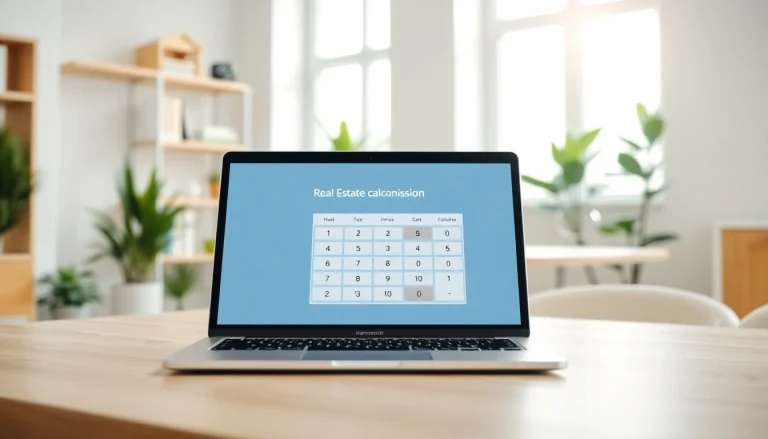
In today’s bustling real estate market, the necessity of effective property management has never been more evident. Property management involves the daily supervision of residential, commercial, or industrial real estate, ensuring the smooth operation and profitability of property investments. Given the dynamic nature of real estate, property managers play a pivotal role in enhancing the value of properties while minimizing owner frustrations. This article delves into the multifaceted world of property management, providing insights into the various roles, responsibilities, marketing strategies, legal requirements, and methods for maximizing return on investment.
Understanding Property Management
What is Property Management?
Property management refers to the operation, control, and oversight of real estate and physical properties. This includes residential, commercial, and industrial properties. A property manager is tasked with ensuring that the property operates smoothly, providing optimal living conditions for tenants, and attending to the owner’s interests. The scope of property management encompasses various activities such as marketing, tenant relations, maintenance oversight, and accounting.
It’s important to note that effective property management serves not only to maintain the physical property but also to enhance tenant satisfaction and cultivate a profitable investment environment. As such, a successful property manager must possess a wide array of skills, from people management to financial acumen.
The Role of a Property Manager
The property manager acts as a liaison between property owners and tenants. Their responsibilities can vary significantly but generally include the following:
- Marketing and Advertising: Creating compelling property listings and leveraging various advertising platforms to attract potential tenants.
- Tenant Screening: Conducting rigorous background checks, including credit reports and rental history, to select reliable tenants.
- Lease Management: Drafting, signing, and renewing leases in accordance with prevailing laws and regulations.
- Rent Collection: Ensuring timely collection of rent from tenants and handling related financial transactions.
- Property Maintenance: Overseeing upkeep and repairs, addressing maintenance requests, and coordinating with service providers.
- Legal Compliance: Ensuring adherence to local, state, and federal laws governing real estate management.
The overarching goal of a property manager is to enhance the overall value of properties while providing a hassle-free experience for both the landlord and tenants.
Types of Property Management Services
Property management services can be classified into several categories based on the type of property being managed:
- Residential Property Management: This involves managing residential properties such as single-family homes, apartments, and multifamily units.
- Commercial Property Management: Encompasses retail spaces, office buildings, and industrial facilities, requiring a distinct set of skills and knowledge.
- Vacation Rental Management: Focuses on short-term rental properties, which require a different approach to tenant interaction and turnover.
- Homeowners Association Management: Involves managing the common areas and shared amenities of residential communities.
Understanding the specific requirements of different property types is crucial for effective property management.
Key Responsibilities in Property Management
Day-to-Day Operations
One of the core responsibilities of a property manager is overseeing the daily operations of a property. This includes addressing tenant inquiries, managing vendor relationships, and ensuring that the property meets safety and compliance standards. A well-organized operational process will enable the property to run efficiently, minimizing any potential disruptions to tenants and maximizing revenue for the owner.
Maintenance and Repairs
Effective property management must prioritize maintenance and timely repairs to uphold property conditions and ensure tenant satisfaction. Property managers should develop a systematic approach to handling maintenance requests, including:
- Establishing Relationships with Vendors: Building a network of reliable contractors and service providers can streamline maintenance tasks.
- Regular Property Inspections: Conducting routine checks of the property helps catch potential issues before they escalate.
- Implementing a Maintenance Schedule: Setting up preventative maintenance programs can prolong the life of installations and systems.
Having a proactive maintenance strategy minimizes repair costs and enhances tenant retention.
Tenant Relationships and Communication
Building and maintaining solid tenant relationships is key to successful property management. Open communication fosters a sense of community and helps address issues before they escalate. Strategies to enhance tenant relationships include:
- Regular Communication: Keep tenants informed of property updates, maintenance schedules, and other important information.
- Feedback Mechanisms: Encourage tenants to provide feedback on services and management to continuously improve operations.
- Prompt Resolution of Issues: Develop a system to promptly address tenant complaints to maintain satisfaction and trust.
Strong tenant relationships lead to higher retention rates and a more stable rental income.
Marketing Your Property Management Services
Creating Effective Listings
The marketing of properties is vital to ensuring high occupancy rates. An effective property listing should include high-quality images, detailed descriptions, and highlight unique features. It’s essential to use targeted keywords that resonate with potential tenants and showcase the benefits of living in the property.
Additionally, utilizing local market data can enhance listings by emphasizing competitive rental rates or amenities available in the area. High-visibility listings not only attract more inquiries but also reduce vacancy periods for property owners.
Using Online Platforms for Promotion
In the digital age, having an online presence is indispensable for property management. By utilizing various online platforms, property managers can reach a wider audience. This includes:
- Real Estate Websites: Listing properties on websites like Zillow, Realtor.com, and local MLS can enhance visibility.
- Social Media Marketing: Platforms such as Facebook, Instagram, and LinkedIn can be used for advertising properties and engaging with the community.
- Company Websites: A well-designed website can serve as a valuable tool for showcasing property management services and available rentals.
By combining traditional and digital marketing strategies, property managers can ensure maximum exposure for their listings.
Building a Brand for Property Management
Establishing a recognizable brand is crucial in differentiating property management services in a competitive market. This involves developing a professional image, consistent messaging, and quality customer service. Key branding elements may include:
- Logo Design: Creating a distinctive logo helps in brand recognition.
- Customer Testimonials: Showcasing feedback from satisfied tenants can enhance credibility.
- Partnerships: Collaborating with local businesses can foster community ties, positioning the management company as a local expert.
A strong brand not only attracts more clients but also retains tenants, leading to longer-term management contracts.
Legal Aspects of Property Management
Licensing Requirements
Understanding the legal landscape is crucial for property managers. In many states, a property management license is required to operate legally. This involves meeting specific educational and examination requirements and adhering to ethical standards. In California, for instance, anyone managing properties for others must obtain a real estate license under the California Bureau of Real Estate.
Understanding Lease Agreements
Lease agreements are fundamental legally binding contracts between landlords and tenants. Property managers must ensure that these contracts comply with local laws and clearly outline the rights and responsibilities of all parties involved. Key components of lease agreements include:
- Rent Amount: Clearly stipulated rental amount, due dates, and payment methods.
- Duration of Lease: Specifying the length of the lease and conditions for renewal.
- Terms of Termination: Outlining the conditions under which the lease may be terminated by either party.
By ensuring comprehensive lease agreements, property managers can prevent misunderstandings and legal disputes.
Compliance with Local Laws
Property managers must stay abreast of federal, state, and local laws impacting property management. This includes regulations related to fair housing, habitability, and tenant rights. Regular training and legal consultations can help property management companies navigate these complex legal frameworks effectively.
Maximizing ROI in Property Management
Cost-Effective Maintenance Strategies
To maximize return on investment, property managers must implement cost-effective maintenance strategies. This involves balancing quality maintenance with affordability, ensuring that properties remain appealing to tenants without incurring unnecessary expenses. Considerations for effective maintenance include:
- Preventative Maintenance: Implementing regular maintenance schedules to address minor issues before they escalate.
- Vendor Relationships: Establishing contracts with reliable service providers can reduce costs and improve response times.
- Budget Planning: Developing an annual maintenance budget that accounts for expected repairs and improvements.
By prioritizing maintenance effectively, property managers can safeguard their investments while enhancing tenant satisfaction.
Tenant Retention Techniques
High tenant turnover can be financially burdensome due to lost rental income and marketing expenses. Therefore, property managers should prioritize tenant retention strategies, including:
- Regular Communication: Keeping open lines of communication with tenants to foster relationships.
- Incentives for Renewal: Offering incentives, such as reduced rent for lease renewals, can encourage long-term leasing.
- Community Engagement: Organizing community events can create a sense of belonging and promote tenant loyalty.
Investing in tenant retention not only contributes to steady income but also enhances the property’s overall reputation.
Measuring Performance Metrics
To effectively manage and improve property operations, property managers should track various performance metrics. Key performance indicators (KPIs) may include:
- Occupancy Rates: Monitoring the percentage of leased units versus vacant units.
- Tenant Turnover Rate: Calculating the frequency of turnover can signal potential underlying issues.
- Maintenance Response Time: Evaluating how quickly maintenance requests are addressed can reflect overall management efficiency.
By regularly assessing these metrics, property managers can identify areas for improvement, ensuring that properties remain competitive in the market.





